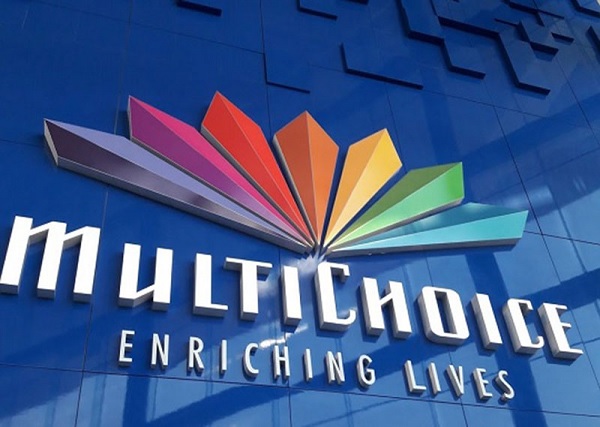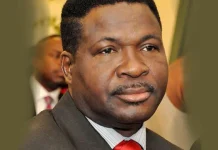The Federal High Court in Abuja has scheduled May 8 for the delivery of its judgment in a legal action initiated by MultiChoice Nigeria Limited against the Federal Competition and Consumer Protection Commission (FCCPC). MultiChoice is seeking to prevent the FCCPC from imposing sanctions related to its recent increase in DStv and Gotv subscription fees.
Justice James Omotosho designated the date following the adoption of processes and presentation of arguments by counsel for MultiChoice, Moyosore Onigbanjo, SAN, and FCCPC’s lawyer, Prof. J.E.O. Abugu, SAN. Justice Omotosho had, on March 12, issued a restraining order against the FCCPC, preventing it from sanctioning the pay-TV company until the substantive suit is heard and determined.
The judge issued this order following an ex-parte motion marked: FHC/ABJ/CS/379/2025, moved by Onigbanjo. The FCCPC had summoned MultiChoice Nigeria Ltd to provide explanations regarding the March 1 price adjustments to its packages. The commission instructed the company’s chief executive officer to attend an investigative hearing on Feb. 27, expressing concerns over frequent price increases, potential abuse of market dominance, and anti-competitive practices within the pay-TV industry.
The FCCPC also issued a stern warning, indicating that failure to justify the price adjustments or adhere to fair market principles would result in regulatory sanctions. However, in the ex-parte motion filed by MultiChoice’s legal team, led by Onigbanjo, the company sought an interim injunction to restrain the FCCPC and its officers from carrying out the threatened actions, as communicated in a letter dated March 3, pending the hearing and determination of the motion for an interlocutory injunction.
It also sought an order preventing the commission and its officers from issuing further directives or taking any actions that could disrupt its business operations, pending the hearing and determination of the motion for an interlocutory injunction. Additionally, it sought an interim injunction to restrain the FCCPC, its agents, servants, or privies from sanctioning or penalizing the company in any manner related to its price increase, pending the hearing and determination of the motion for an interlocutory injunction.
Upon the resumption of the hearing this Thursday, Onigbanjo informed the court that the matter was scheduled for the hearing of the substantive suit. He stated that the FCCPC had served them with a counter affidavit, to which they had responded with a further affidavit and a reply on points of law. After the parties’ counsel had regularized their processes in the suit, the judge granted them permission to adopt their applications.
Adopting his processes, Onigbanjo stated that their originating motion was filed on March 3. “There are six questions for determination, and we seek eight prayers on the face of the originating summons, supported by an affidavit of 48 paragraphs.
“Attached are nine exhibits, designated MJO1 to MJO 9,” he said. The lawyer stated that the core issue was whether the FCCPC had the authority to control the pricing of the company’s services. He questioned whether the FCCPC Act, 2018, grants the commission, as a regulatory agency, the power to regulate prices.
Referencing a past decision of the Federal Competition and Consumer Protection Tribunal (FCCPT) in Exhibit MJO-4, attached to their application, he argued that the tribunal had explicitly stated that the authority to regulate goods and services rests solely with the President of Nigeria.
He stated that the tribunal informed the plaintiff, who had sought a reversal of the price increase, that the prayers sought were not grantable. Also referencing Exhibit MJO-6, a copy of a newspaper interview with the president, Onigbanjo quoted the president as stating that his administration does not believe in market control, but rather in allowing market forces to determine pricing.
The lawyer, therefore, submitted that the FCCPC lacks the authority to regulate the company’s pricing. “Even the defendant themselves have conceded to this point. “I refer to their counter affidavit, Paragraph 12, where they state that the defendant reiterates that its functions do not include price fixing,” he said.
He further stated that in Paragraph 18 of the FCCPC’s counter affidavit, the commission agreed that it is not within its functions to fix the plaintiff’s prices. “If you do not have the authority to control prices, from where do you derive the authority to suspend a price increase? “The law is clear. Even though you are a statutory body, if you act outside your statute, that action will be declared ultra vires,” he said.
Onigbanjo also accused the FCCPC of discriminatory practices against his client. The lawyer, arguing that price increases have affected all businesses in the country due to the removal of petroleum product subsidies, inflationary trends, and the depreciation of the naira, alleged that only MultiChoice’s decision to increase prices attracted the FCCPC’s attention.
“How can any business operate without increasing prices? “The only entity that has not increased prices in Nigeria today is the plaintiff (MultiChoice). “The constitution states that we are all equal before the law. We cannot be subjected to discriminatory practices.
“Telecommunications companies increased prices, and no one intervened; airline companies did the same, and no one intervened; even lawyers have increased their fees,” he said. He alleged that the commission suspended the company’s planned price increase before they even appeared before them.
“It is against the principle of fair hearing. They did not even know, at that stage, what the price increase would be,” he said, accusing the commission of making an administrative decision against his client without due process.
He urged the court to resolve all issues in favor of the company. In response, Abugu vehemently opposed the reliefs sought in MultiChoice’s originating summons. He stated that the regulatory agency filed a 34-paragraph counter affidavit, dated March 20, with four exhibits attached.
“We adopt all the averments in the counter affidavit and also adopt the written address as our argument in the suit,” he said. Elaborating, Abugu submitted that the primary issue to address was the cause of action in the suit.
“The court will observe the sequence of events in our paragraphs,” he said. The lawyer maintained that the supervisory jurisdiction of the commission is confirmed by its established Act, 2018. He explained that MultiChoice, on Feb. 25, sent a letter indicating its intention to increase subscription rates.
He stated that the commission responded, requesting that if the company intended to increase its subscription rates on March 21, its management should attend a meeting on Feb. 2













